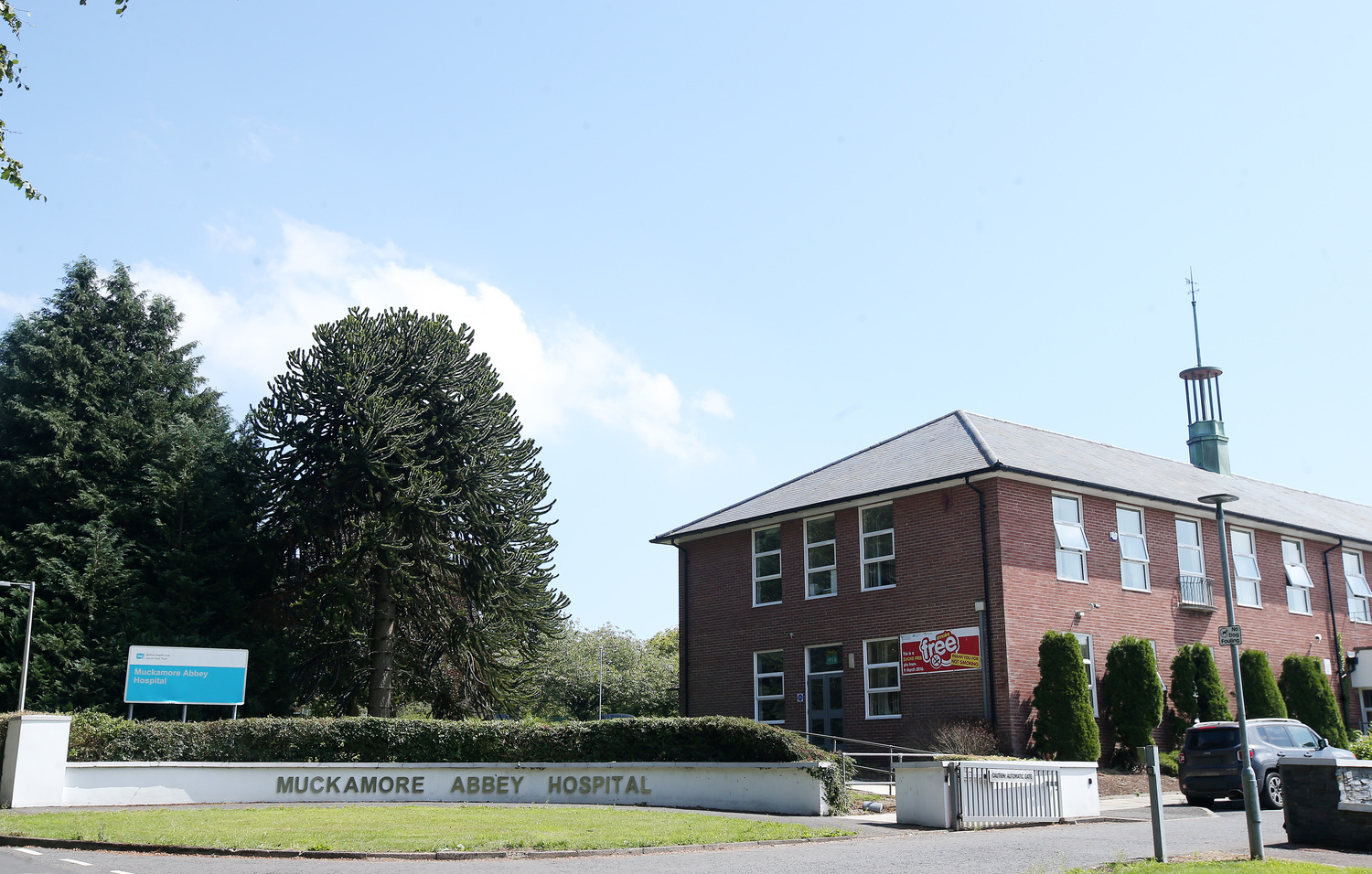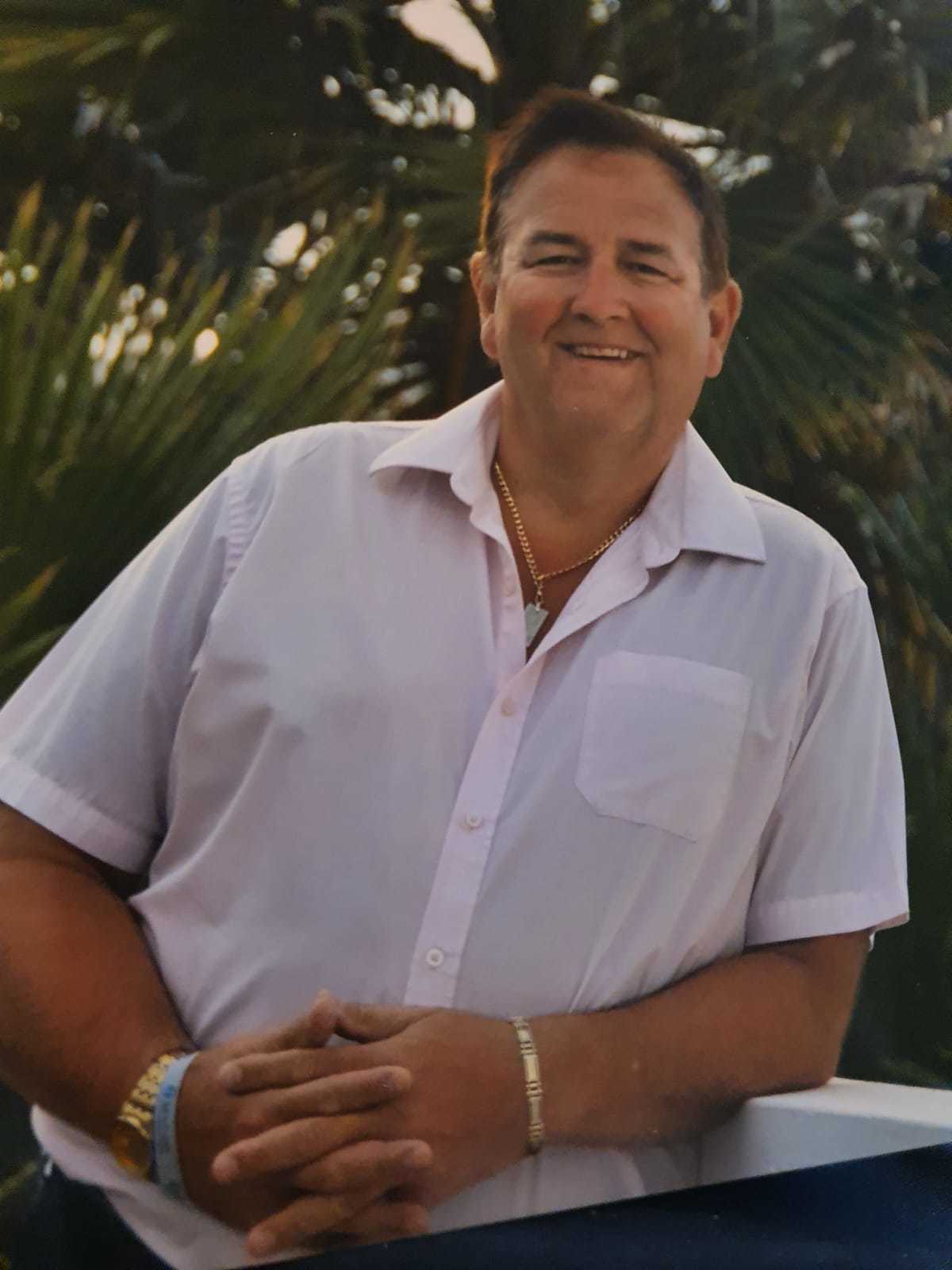THE father of a former patient at Muckamore Abbey has questioned the motive behind health authorities sanctioning work on the hospital's seclusion room.
According to the Belfast Health and Social Care Trust (BHSCT) 'seclusion within learning disability inpatient services' policy, seclusion is defined as the forcible denial of company of a patient who is usually confined alone in a room with no means to exit.
The Detail can reveal that £95,977 was spent by the BHSCT on upgrading Muckamore's seclusion room. We uncovered this information by making a Freedom of Information (FoI) request.
Aaron Brown, the disabled son of Action for Muckamore campaign group leader – Glynn Brown – was placed in the scandal-hit mental health and learning disability facility’s seclusion room on a regular basis as an inpatient.
Mr Brown is concerned about the BHSCT's reasoning for upgrading the seclusion room, given a senior individual in the trust acknowledged there was a commitment to ending its use a number of months before work began on it.
He told The Detail: “When the trust opened this new seclusion room, they already said openly the plan was to scrap its usage completely. If that’s the case, why spend £100,000 to do it up?”
Mr Brown’s view is that this was done for a “photo opportunity” to make the trust “look good”.
A BHSCT spokesperson told The Detail that some of the initial work on the room was “part of a business case submitted by the management team in May 2017”.
Work began on Muckamore's seclusion room in March 2018 and was completed in May 2018.
The trust released photos of the upgraded seclusion room to the BBC in December 2018, a week after a former Muckamore inpatient’s mother was reported to have called it a “dark dungeon” and referenced it having no toilet or drinking facilities, and "nothing to look at, no stimulation whatsoever".
However, the woman’s comments related to when she had seen the room before the work had been carried out. As a result of the work, bathroom facilities became accessible from the room.
The BHSCT also released evidence of what the seclusion room was like prior to the work being completed, but Mr Brown said: “I wouldn’t have minded if they’d said this was a dark dungeon but we have spent £100,000 and now it’s a super-duper room and we apologise for the last one looking like a dog house.”
The BHSCT said: “The photos released by the trust were taken in December 2018 and reflected the improvements made to the room.
“The decision to release the photos was to demonstrate the location where seclusion took place.”
Mr Brown first became aware of allegations that his son had been assaulted in Muckamore in the summer of 2017.
News relating to the scandal-hit facility has broken gradually since then, much of it focusing on the use of the seclusion room.
It has recently been reported that 15 people have been arrested in connection to what has gone on at Muckamore. Over 60 members of staff have been suspended.
The PSNI have stated that 1,500 crimes were committed in one ward of the hospital in a six-month period in 2017/18.
Detective Chief Inspector Jill Duffie previously described the police investigation into Muckamore as the "largest adult safeguarding case" of its kind ever undertaken by the PSNI.
Seclusion policy
BHSCT policy dictates that seclusion should be an emergency management procedure in hospitals like Muckamore and should be used as a last resort.
Despite this, the trust told Mr Brown “it is recorded” that his son, Aaron, was placed in seclusion 53 times from the July 9, 2017 to September 22, 2018, but Mr Brown questioned the accuracy of these figures on the basis that there may have been occasions when his son was sent to seclusion which weren’t properly recorded.
However, the BHSCT told us it “stands by all the information we have provided to Mr Brown”.
Mr Brown also said the BHSCT would not inform him of the number of these times which constituted unauthorised or inappropriate uses of the seclusion room as it formed part of “an active investigation”.
The trust did not comment on this issue when asked by The Detail "as to do so may compromise the ongoing PSNI investigation and future public inquiry".
Mr Brown added he is aware that his son spent over two hours in seclusion on at least three occasions and that other Muckamore patients were sent to seclusion even more regularly than Aaron.
He said: “What were the trust’s justifications or rationales for secluding Aaron so regularly and were there other less restrictive practices available? Was appropriate documentation completed to support each of these courses of action?
“Did all of Aaron’s periods of seclusion comply with the deprivation of liberty safeguards and were they lawful in that regard?”
In response to Mr Brown’s queries regarding these issues, the trust said that in all but one recorded episode of seclusion “staff recorded physical aggression to others as the reason for seclusion” and in the other episode of seclusion “staff recorded aggression and sustained levels of agitation as the reason”.
The BHSCT added that the “intensity” of Mr Brown’s son’s behaviour “in their judgment” meant “de-escalation and other measures were not safe/appropriate and seclusion was required”.
Mr Brown told us: ”That’s more or less saying that, every time, seclusion was warranted – despite what Margaret Flynn’s report states.”
Ms Flynn’s Muckamore ‘safeguarding review’ report was published in February 2019.
It found that the “unmonitored” use of seclusion was “harmful and disproportionate” as well as being “improper and excessive”.
Mr Brown said: “Vulnerable patients in Muckamore should have had constant observation after being sent to seclusion, but they were just thrown in to get them out of the road and they were then unsupported and unsupervised.
“The trust has tried to maintain that the use of the seclusion was above board and supported, but then you read Margaret Flynn’s report – which came out a number of months after I received the trust’s response – which clearly shows it was not.
“They just thought ‘oh there’s someone who’s a nuisance, throw him or her in the seclusion room’ – it was just a dumping ground.”
When asked by Mr Brown if all of Aaron’s periods of seclusion complied with deprivation of liberty safeguards, the BHSCT replied that the team took cognisance of the “interim guidance around deprivation of liberty safeguards” issued in 2010, which “is reflected in the documented periods of seclusion”.
Mr Brown said: “They just didn’t answer the question. I was trying to tie them down on what would constitute a breach of deprivation of liberty safeguards and whether or not this would be legal.”
The BHSCT also maintained that “appropriate documentation” was completed in each of the 53 recorded times that Aaron was sent to seclusion.
The responses to Mr Brown’s queries were sent to him by the BHSCT in October 2018 and were signed off by Marie Heaney, the director of adult social care in the trust.
It was, however, later reported that – in the weeks prior to this – Ms Heaney had told Mr Brown in a meeting also attended by East Belfast’s DUP MP Gavin Robinson and Northern Ireland Chief Social Worker Sean Holland that use of Muckamore’s seclusion room would come to an end.
Mr Brown said: “Yet only a few months later the trust spent almost £100,000 on sprucing it up for a photo opportunity."
In August 2020, 18 months after the publication of the Muckamore ‘safeguarding review’, the ‘Review of Leadership and Governance at Muckamore Abbey Hospital’ report was published.
In September 2020, The Detail exposed how this report repeatedly and falsely called the Regulation and Quality Improvement Authority (RQIA) Muckamore’s regulator.
Following the publication of the leadership and governance report, Health Minister Robin Swann apologised publicly to Mr Brown and paid tribute “to his perseverance and devotion to his son”.
Minister Swann added: “Mr Brown’s determination was central in exposing the truth about Muckamore. It shouldn’t have been left to him to do this but we should all be very grateful that he did.”
One month later, the minister announced there would be a public inquiry into Muckamore, which Mr Brown and other Muckamore families had long been campaigning for.
Mr Brown said that while he and other families welcome the public inquiry “the PSNI investigation is still of the utmost importance in achieving justice for what senior staff oversaw in relation to Muckamore”.
 By
By

